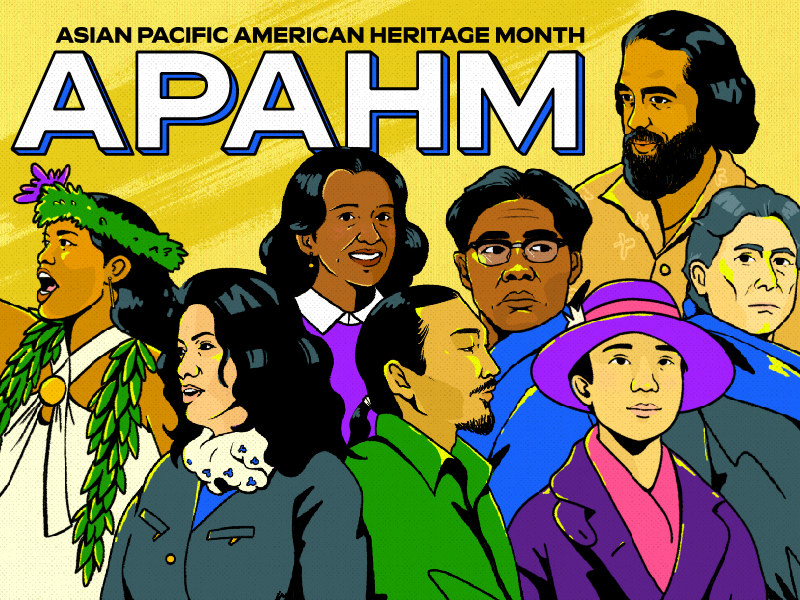Meet Lily Hi'ilani Okimura, a 24-year-old Native Hawaiian woman living on O'ahu. She has over 83,000 followers on TikTok, where she regularly posts videos about issues that affect Pacific Islanders.
One such issue that Lily says has been exceedingly harmful to Native Hawaiians is tourism. In 2019, a record 10.4 million people visited the islands of Hawai'i; the numbers naturally decreased during 2020 but skyrocketed again last year. In 2021, over 6.7 million people visited, despite both a global pandemic and increasingly vocal natives asking tourists to stop coming.
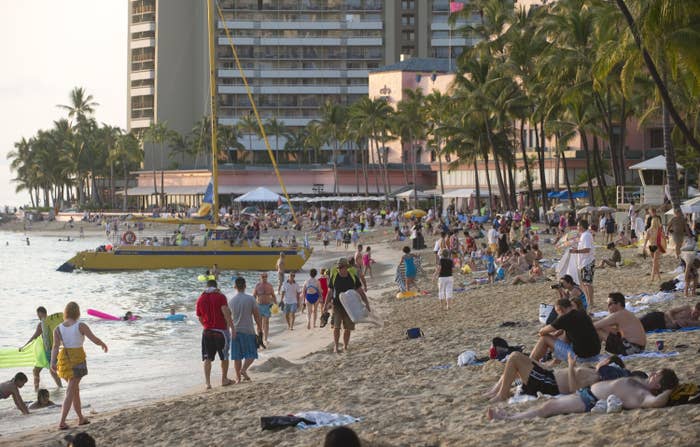
To learn more about the negative consequences of tourism, BuzzFeed recently spoke to Lily. She revealed that one of the biggest issues is that visitors are often deeply disrespectful. "A lot of tourists treat our land like it's some theme park," she said. "They will ignore warning signs, fenced-off areas, and 'no trespassing' signs, which can cause damage to our environment like erosion, vandalism, and pollution."
Tourists bothering wild animals happens more often than you'd think. Last year, a couple from Louisiana made national headlines when they were fined for touching an endangered monk seal. At the time, Lily made a passionate TikTok pointing out the abundance of signs that warn tourists not to harass the animals.
She condemned tourists who disregard the rules when visiting Hawai'i, saying, "If you can't be bothered to respect the place that you're going to visit, then you can go back home."
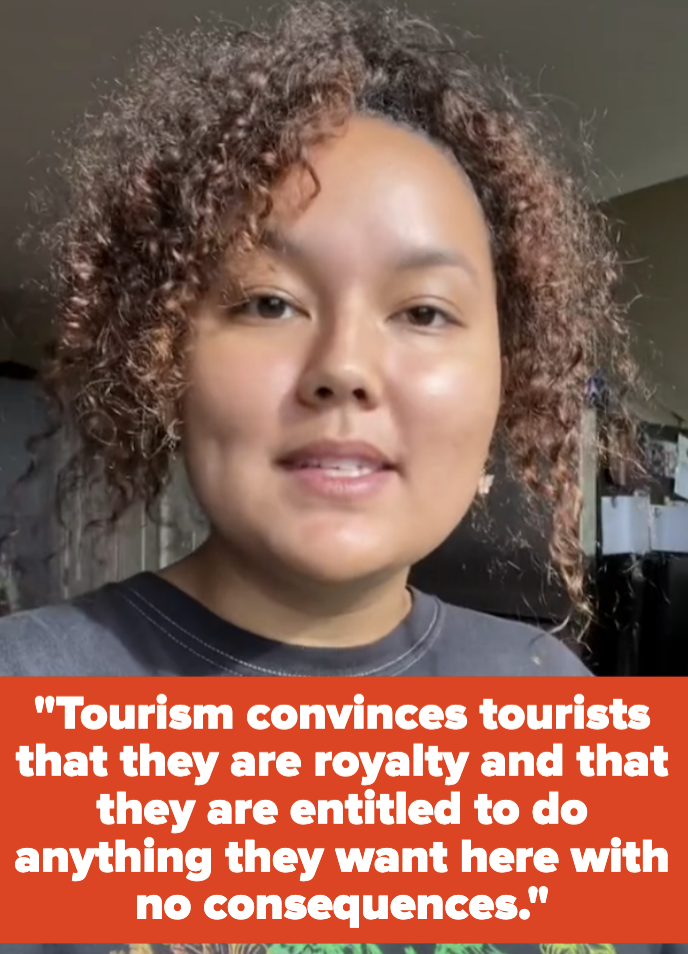
A common rebuttal to Native Hawaiians' request to stop visiting the islands is that Hawai'i relies upon tourism. However, it's much more complicated than that. "We only started to 'rely' on tourism when Hawai'i forcibly became a US territory and then a state," Lily said. "Before, we were a sovereign nation!"
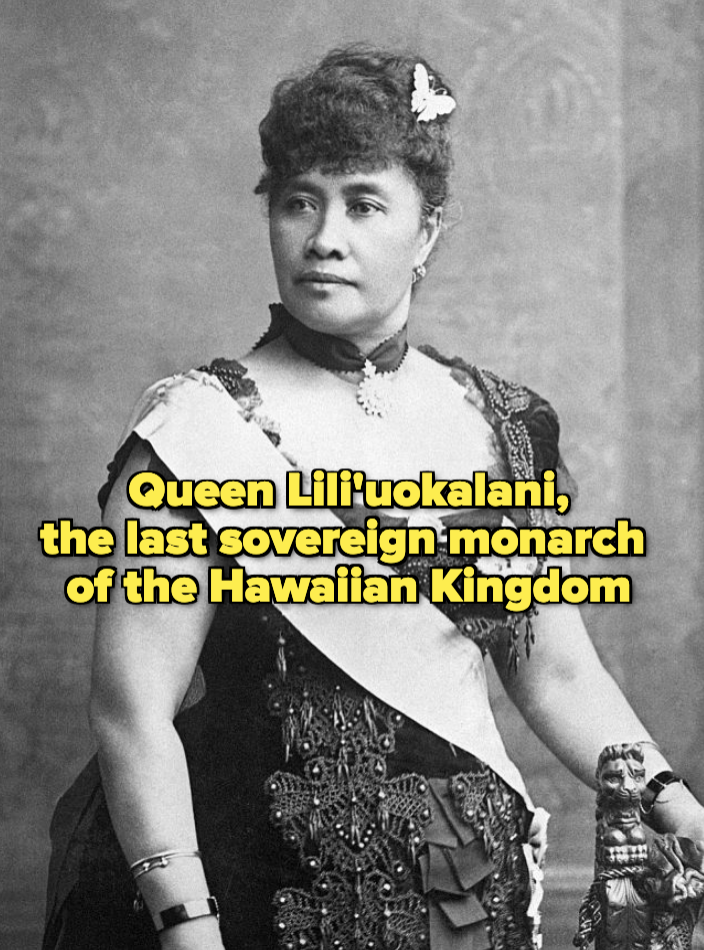
"When people say they should be able to visit Hawai'i because 'it's part of the United States,' I tell them they're missing the point. Sure, you have the 'right' to travel wherever you want, but does that make it right? Especially if the indigenous people and other residents are asking visitors not to come due to a worldwide pandemic, our limited resources, and because our tourism industry exploits our people and culture. What does that say about you to disregard all of this because 'What about my vacation?'"
"The people of Hawai'i don't benefit from tourist money," according to Lily. "All of that goes back to the hotel owners, the developers, and the tourism industry. Native Hawaiians who work in tourism tend to be overworked and underpaid, not to mention having to deal with ignorant, obnoxious tourists daily and having to see our culture being appropriated and commodified. Our people often have to work two-plus jobs just to make ends meet. If we 'relied' on tourism, why is 51% of the homeless population Native Hawaiian?"
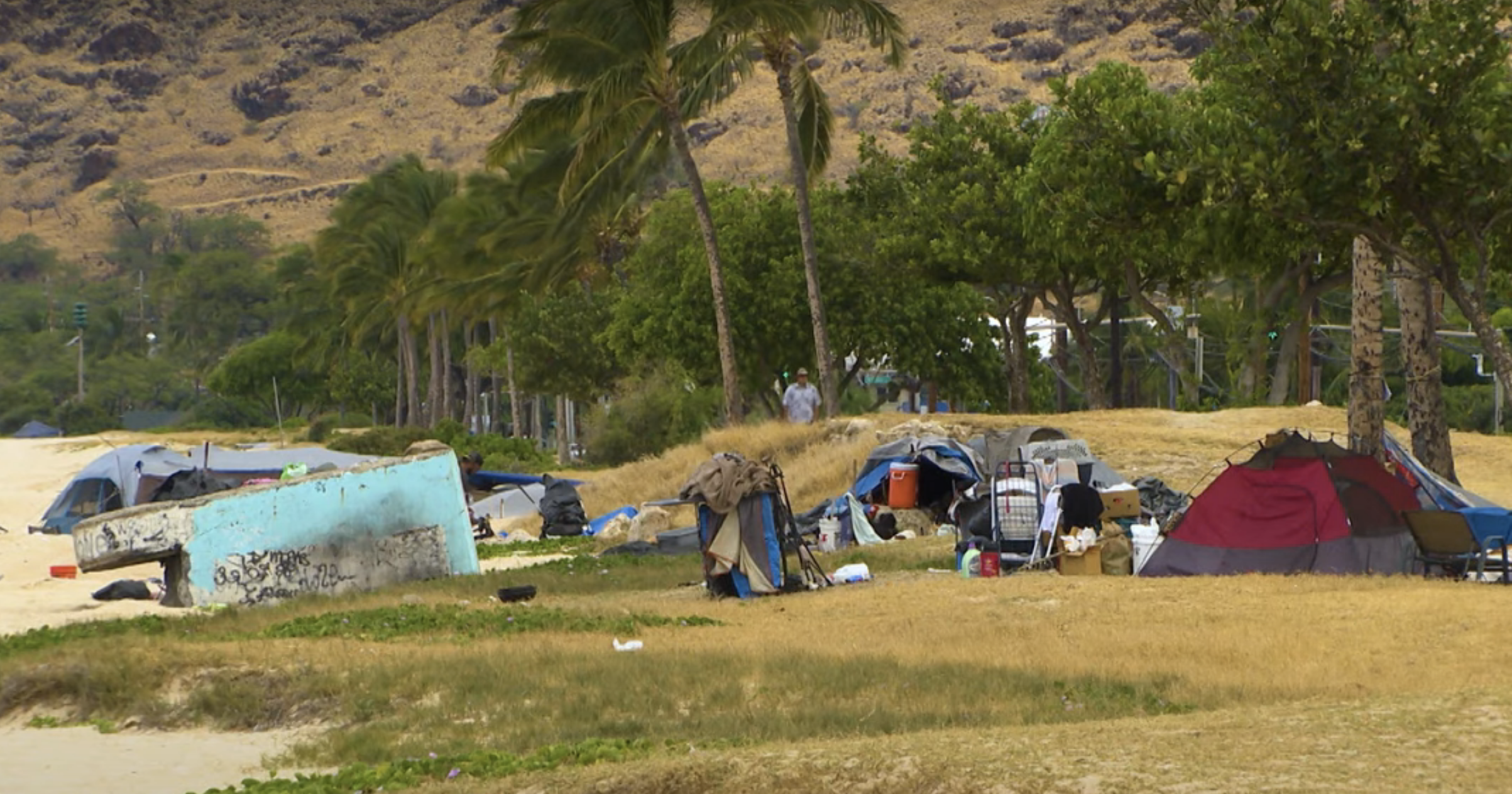
The overrepresentation of Native Hawaiians in the homeless population is a complex problem. Two months ago, the median sale price for a single family home on O'ahu hit a record $1.15 million. Out-of-state homebuyers and remote workers have contributed to the rising cost of real estate, while wages haven't caught up. And there are only so many houses available on an island.
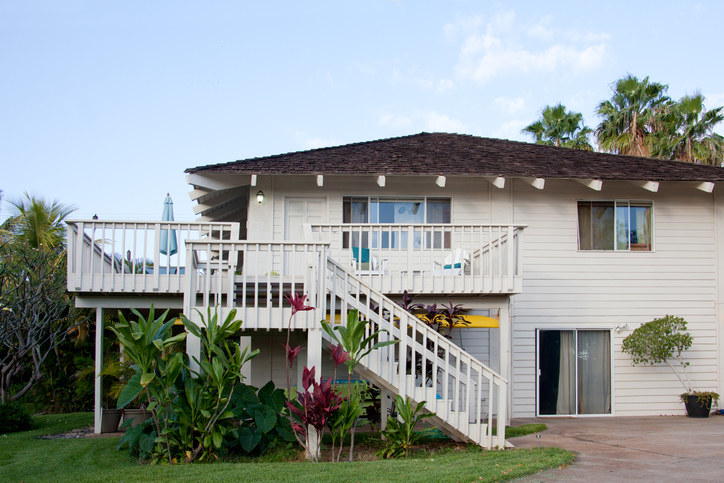
With housing prices so high, some have asked why Native Hawaiians don't just move to the continental US to find cheaper alternatives. However, this disregards the indigenous people's ties to the islands. "Native Hawaiians have a deep connection to the ʻāina, the land," Lily explained. "We consider ourselves stewards of the land, and it is our kuleana, our responsibility, to take care of it, because in return, it takes care of us."
"We also have a deep connection to the ocean," she continued. "We don't see the ocean as separate from the land, but part of it. They are the passageways between islands. It was how our kūpuna, our ancestors, were able to get from place to place, and it is the home of fish and other sea animals."
"Native Hawaiians are the first human inhabitants of Hawai'i, and this is our home. Our kūpuna have lived here for thousands of years passing down stories, lessons, and knowledge that we continue to share and pass down today to our descendants so we can continue to thrive and live here sustainably. It is because we have this connection to our āina that we don't want to just abandon it and move somewhere else."
In recent years, ethical tourism has become a trendy topic. Hopeful travelers have asked Lily how they can visit Hawai'i without any negative impact to the local community. However, Lily doesn't believe it's possible. "Truthfully, there's no way someone can visit Hawai'i 'ethically' with how our tourism industry is structured now."
But if tourists are still determined to visit Hawai'i despite natives' pleas to stay away, Lily provided a few ways to minimize harm. "If you have family or friends who live here, see if you can stay with them during your visit rather than giving money to the hotel industry and especially Airbnbs, which are majority-owned by non-residents," she suggested.
"Don't spend all of your time in Waikīkī and other tourist traps. Actually see Hawai'i. Experience our culture: Take time to learn some ōlelo Hawai'i (the Hawaiian language) or if you want to learn hula, make sure to seek classes/lessons from a Kumu Hula (a hula teacher). Buy from Native Hawaiian-owned and locally-owned businesses and restaurants. And finally, leave things how you found it. Pick up your trash, don't take any sand or rocks, and treat the āina with respect," she concluded.
If you want to learn more about how tourism affects Native Hawaiians, be sure to follow Lily on TikTok.
Looking for more AAPI-centered content? Check out our APAHM posts here!
